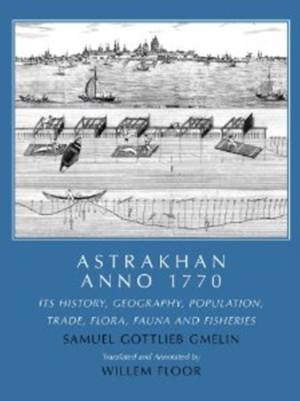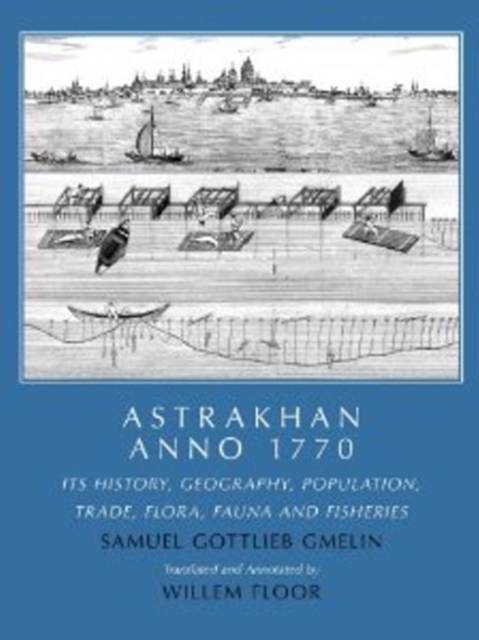
Je cadeautjes zeker op tijd in huis hebben voor de feestdagen? Kom langs in onze winkels en vind het perfecte geschenk!
- Afhalen na 1 uur in een winkel met voorraad
- Gratis thuislevering in België vanaf € 30
- Ruim aanbod met 7 miljoen producten
Je cadeautjes zeker op tijd in huis hebben voor de feestdagen? Kom langs in onze winkels en vind het perfecte geschenk!
- Afhalen na 1 uur in een winkel met voorraad
- Gratis thuislevering in België vanaf € 30
- Ruim aanbod met 7 miljoen producten
Zoeken
Astrakhan Anno 1770
Its History, Geography, Population, Trade, Flora, Fauna and Fisheries
Samuel Gottlieb Gmelin
Paperback | Engels
€ 101,95
+ 203 punten
Omschrijving
In 1770, Astrakhan, on the left bank of the Volga River close to where it discharges into the Caspian Sea, was Russia's most important southern port through which all its trade with Iran and the Orient was conducted. Astrakhan had been a Tatar city until 1556 (when Ivan the Terrible conquered it), a fact reflected in the composition of its population in 1770: Tatars, Russians, Armenians, and Iranians. Samuel Gottlieb Gmelin, a young member of the Russian Academy of Sciences, lived for almost a year in the city in 1770 and left a very detailed account of its geography, history, people, economy, flora, and fauna. Gmelin first describes the model colony of Sarepta established, by special agreement with the Russian government, by the German Moravian Brothers in 1765. Then he moves his narrative to Astrakhan, the Russian outpost on the Caspian Sea and provides us with a detailed description of its history, including that of Stenko Razin's 1672 rebellion that devastated the port and its people. Gmelin takes us on an extensive tour of the city and provides us detailed plans and panoramas of the city, which was also important for its fisheries and salt works. All these economic activities are described in great detail, as are the flora and fauna of the city's environs. Gmelin's descriptions of these activities are embellished with exquisite drawings that show the people, their activities, the plants, and the animals. The descriptions of the city, its people and their activities are so vivid and given in such detail that the reader will literally be taken back in time and place. Willem Floor has published numerous works of history as well as translations, which include: volumes 3 and 4 of Samuel Gottlieb Gmelin's Travels Through Northern Persia 1770-1774; as well as Mirza Naqi Nasiri's Titles and Emoluments in Safavid Iran: A Third Manual of Safavid Administration. He has also translated, in collaboration with Hasan Javadi, The Heavenly Rose-Garden: A History of Shirvan & Daghestan by Abbas Qoli Aqa Bakikhanov; and Evlya Chelebi's Travels in Iran and the Caucasus, 1652 and 1655.
Specificaties
Betrokkenen
- Auteur(s):
- Vertaler(s):
- Uitgeverij:
Inhoud
- Aantal bladzijden:
- 248
- Taal:
- Engels
Eigenschappen
- Productcode (EAN):
- 9781933823546
- Verschijningsdatum:
- 1/01/2013
- Uitvoering:
- Paperback
- Formaat:
- Trade paperback (VS)
- Afmetingen:
- 210 mm x 279 mm
- Gewicht:
- 566 g

Alleen bij Standaard Boekhandel
+ 203 punten op je klantenkaart van Standaard Boekhandel
Beoordelingen
We publiceren alleen reviews die voldoen aan de voorwaarden voor reviews. Bekijk onze voorwaarden voor reviews.









